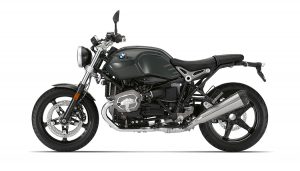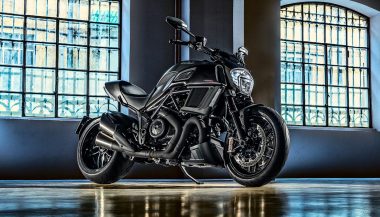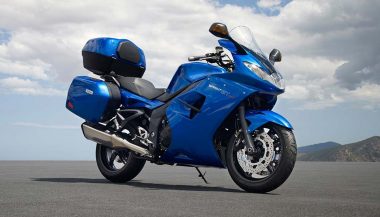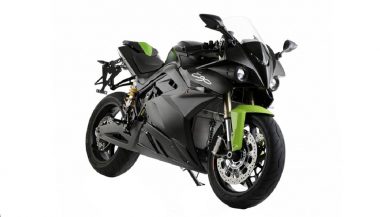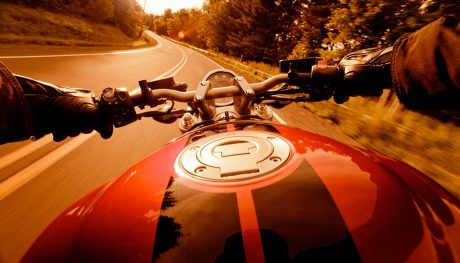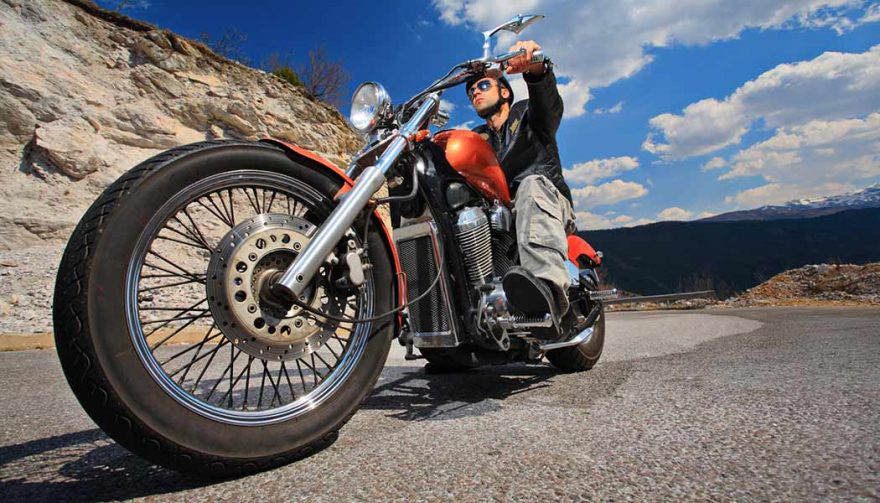
Pack lightly when you're taking a motorcycle road trip.
How to Pack and Plan for a Weekend Motorcycle Trip
Taking a motorcycle road trip is a great way to shed the stress of everyday life, even if it’s just for the weekend. However, planning your trip poses some logistical challenges.
You can’t pack as much, and you can’t really ride as long as you would drive a car. After you make sure your motorcycle is ready to ride, here are a few tips for making your motorcycle road trip a success.
Where to Go
Physically more demanding, a motorcycle takes a lot out of you on long trips. No air conditioning, a cramped riding position, constant vibration, and noise, noise and more noise, it all wears away at your energy level.
Even the constant wind noise coming through your helmet and ear protection will take its toll on your nerves. This is something you don’t experience on short trips of one or two hours.
Besides, you naturally stay more alert on a bike because your safety depends on it, but that constant state of alertness erodes your energy.
A good distance for a day’s ride away from home is around 300 miles. Get a paper road map and draw a circle with a radius of 300 miles from your home. Then look for small towns and choose one for a destination.
Avoid big cities, as traffic is more dangerous to navigate in unfamiliar territory. You want a town just big enough to have a quality hotel for your one-night stay. Book your reservation in advance, because it’s no fun to search for accommodations at the end of a long day of riding.
Ask the hotel if they have safe parking for motorcycles, and take note on how well they answer your question. Even if they don’t have designated motorcycle parking areas, that are especially well-lit and watched over, that’s OK. A good hotel (that’s friendly to bikers) will offer to keep an eye on your motorcycle if you park it just outside their lobby in plain sight. It’s not too much to expect.
What to Pack
Think small. If you need a certain shampoo, don’t take a 16-ounce bottle of it for a weekend trip. Buy a small three-ounce travel bottle from your local dollar store and fill it with your favorite shampoo. Same with toothpaste. Get a small travel size.
Get two cell phone chargers, one to plug into your bike’s charging outlet (if it has one) and one for the hotel at night. Make sure your cell phone always has a charge so you can check in with somebody to tell them you’re alive or make an emergency call if you need.
Be sure to put together some sort of small roadside emergency kit to keep on your bike at all times. And it’s always a good idea to keep a first-aid kit on hand.
What to Wear
Let’s assume you already have proper riding gear, like a good jacket, motorcycle boots, gloves, a helmet with two visors, one clear and one shaded, earplugs and a few bandanas. There are two schools of thought about what to pack for the rest of your clothes.
Some people like washable, dry-fast shirts, underwear and socks. They bring detergent with them, wash clothes in the hotel at night and then hang their clothes up to dry overnight.
The other school of thought is to bring your worst tee shirts, underwear and socks, and throw them away at the end of each day.
On a week-long trip, the price of seven sets of that stuff will be tiny compared to what you will pay for hotels and meals. And as you get rid of stuff daily, it leaves a little more room for souvenirs of the trip.
What to Eat
Don’t eat too cheaply or too expensive. Eating from the one-dollar menus at fast food places will fill you up with fatty and sugary foods. Not good, and you won’t feel well if you do that three times each day.
Likewise, at better restaurants skip the rich entrees and luxurious deserts. The same reason applies. If you don’t eat like that every day, your body won’t react well to that change of food on a long trip.
Try to eat what you normally eat when at home. Be reasonable about your intake of fat and sugar. Bring along some small bags of energy food for snacks, like dried fruit and nuts.
Water, you never have enough with you on a hot day. Carry as much water as your bike can hold, but don’t sacrifice too much for the sake of taking other important items. Remember, you can always stop and get water along the way. Just be sure to always have some on hand in case of an emergency.
How to Schedule Your Time on the Road
Ride an hour, then stop and rest. Parking a bike with an out-of-town license plate at a country store is like putting out a sign that says “Tell me your life story.” Be prepared for many friendly people to introduce themselves and to start conversations. That’s one of the best parts of a long motorcycle road trip.
Finally, pick (in advance) a few museums and sight-seeing places to stop at along the way, even if it’s just briefly. The change of scenery will burn off more of the stress that you are escaping from.
Stay safe riding your motorcycle and have fun riding on your motorcycle road trip.

